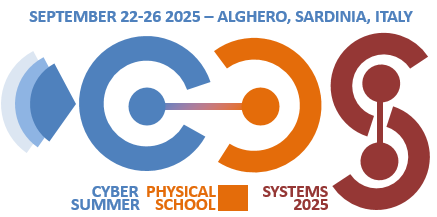Paolo Azzoni
The next era of industry, automotive, transportation, health care, agriculture, … and even of our society is being and will be deeply influenced by technologies such as the Internet of Things (IoT), embedded systems, Machine to Machine (M2M) communication, cloud computing, artificial intelligence, … bringing us to what is unanimously considered the forth industrial revolution. Cyber-Physical Systems (CPS) play a key role in this revolution, collecting the benefits introduced by all these key technologies and representing the enabling factor of the radical transformation of industry, economy and society. In principle, CPS possess all the ingredients required by an integrated recipe capable to manage connectivity, self-regulation, information processing, real-time responsiveness, geographic distribution, security, … a recipe that becomes the key factor to delete the boundaries between firms, markets and vertical domains. CPS in conjunction with the availability of hyper connectivity could lead to a significant change in the nature of the economic system, shifting its inner structure from a linear value chain to a non linear value network: highly connected CPS could allow new and existing stakeholders to easily and seamlessly integrate horizontally and vertically, across all the production stages.
In a similar perspective, a smart factory with a production system based on CPS will be capable to promptly react to market changes and manage autonomously the flow of goods in the entire networked supply chain. The value chain and the involved stakeholders will benefit from a new generation of services, based on the capabilities of heterogeneous CPS and emerging from their interaction: remote management and control, provisioning, predictive & prescriptive analytics, real-time complex event detection and management, …
CPS are considered as the key enabling factor for smart “everything”, in almost every vertical domain, therefore their potential impact is huge: the first adopters of CPS-based solutions will have a long-lasting competitive advantage in the global market. However, the potential impact is also negatively influenced by technical challenges and obstacles that prevent the definitive uptake of most CPS-based markets. Concern about security and privacy, that frequently lead to the complete absence of end-user trust; lack of systems interoperability, both during the engineering phases and during operation; lack of solutions for system of systems management; absence of a European ecosystem, where public authorities, companies and end-users cooperate for innovation and market development; absence of trained professionals; limited understanding of the market and difficulties in the identification of suitable business models … these are the some on many issues that currently affect the CPS market.
This talk provides a snapshot of the CPS market, illustrating the expectations, the current panorama and the trends for the years to come. It provides an overview of the technical challenges that the CPS market will have to face, of the barriers that are currently preventing its exponential growth and of the factors that will influence its evolution.
In a similar perspective, a smart factory with a production system based on CPS will be capable to promptly react to market changes and manage autonomously the flow of goods in the entire networked supply chain. The value chain and the involved stakeholders will benefit from a new generation of services, based on the capabilities of heterogeneous CPS and emerging from their interaction: remote management and control, provisioning, predictive & prescriptive analytics, real-time complex event detection and management, …
CPS are considered as the key enabling factor for smart “everything”, in almost every vertical domain, therefore their potential impact is huge: the first adopters of CPS-based solutions will have a long-lasting competitive advantage in the global market. However, the potential impact is also negatively influenced by technical challenges and obstacles that prevent the definitive uptake of most CPS-based markets. Concern about security and privacy, that frequently lead to the complete absence of end-user trust; lack of systems interoperability, both during the engineering phases and during operation; lack of solutions for system of systems management; absence of a European ecosystem, where public authorities, companies and end-users cooperate for innovation and market development; absence of trained professionals; limited understanding of the market and difficulties in the identification of suitable business models … these are the some on many issues that currently affect the CPS market.
This talk provides a snapshot of the CPS market, illustrating the expectations, the current panorama and the trends for the years to come. It provides an overview of the technical challenges that the CPS market will have to face, of the barriers that are currently preventing its exponential growth and of the factors that will influence its evolution.

